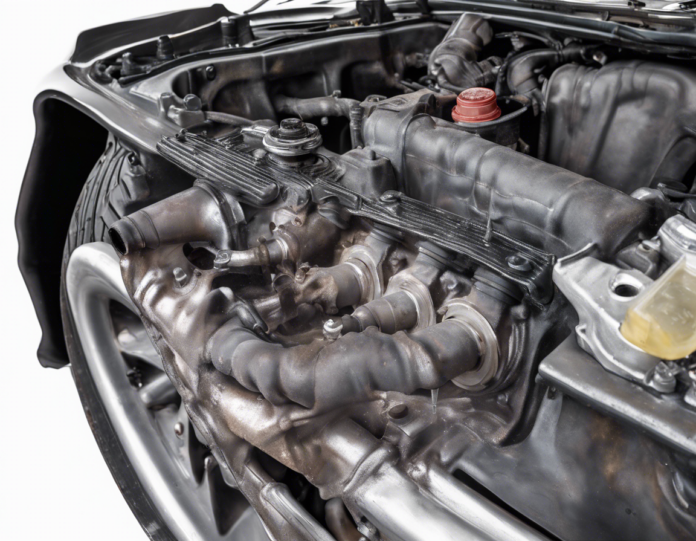Transmission fluid is a crucial component of any vehicle, as it helps lubricate the transmission system and keeps it running smoothly. However, occasionally, transmission oil leaks may occur, causing issues and potentially leading to costly repairs if not addressed promptly. In this comprehensive guide, we will delve into the causes of transmission oil leaks and provide you with solutions to effectively deal with this common automotive problem.
Understanding Transmission Oil Leaks
What Causes Transmission Oil Leaks?
1. Worn Seals and Gaskets: Over time, the seals and gaskets in the transmission system can deteriorate, leading to leaks.
2. Loose or Damaged Transmission Pan: The transmission pan, which holds the transmission fluid, may become loose or damaged, causing leaks.
3. Faulty Transmission Cooler Lines: If the transmission cooler lines become worn or damaged, leaks can occur.
4. Improper Installation of Seals or Gaskets: Incorrect installation of seals or gaskets during maintenance or repairs can result in leaks.
5. Overheating: Excessive heat from driving in high temperatures or heavy loads can lead to leaks in the transmission system.
Identifying a Transmission Oil Leak
How to Spot a Transmission Oil Leak?
1. Puddles Under the Vehicle: If you notice red or brown puddles forming under your vehicle, it may indicate a transmission oil leak.
2. Burning Smell: A burning smell while driving could be a sign of transmission fluid leaking onto hot engine parts.
3. Low Fluid Levels: Regularly check your transmission fluid levels. A sudden drop in levels could indicate a leak.
4. Transmission Slipping: If your transmission is slipping or not shifting smoothly, it could be due to low fluid levels caused by a leak.
Solutions for Dealing with Transmission Oil Leaks
How to Address Transmission Oil Leaks?
1. Replace Seals and Gaskets: If worn seals or gaskets are causing the leak, replacing them can resolve the issue.
2. Tighten or Replace Transmission Pan: Ensuring the transmission pan is securely fastened or replacing it if damaged can help prevent leaks.
3. Repair or Replace Transmission Cooler Lines: Damaged cooler lines should be repaired or replaced to stop leaks.
4. Check Transmission Fluid Levels: Regularly monitor your transmission fluid levels and top up as needed to prevent damage from low fluid levels.
5. Address Overheating Issues: Take steps to prevent your transmission from overheating by ensuring proper cooling system functionality.
6. Seek Professional Help: If you are unsure of the cause of the leak or how to fix it, consult a professional mechanic for guidance and repairs.
FAQs – Frequently Asked Questions
1. Can I continue driving with a transmission oil leak?
It is not recommended to drive with a transmission oil leak as low fluid levels can damage the transmission system. Park your vehicle and address the leak promptly.
2. How much does it cost to fix a transmission oil leak?
The cost of repairing a transmission oil leak can vary depending on the cause of the leak and the extent of the damage. It is advisable to get a professional assessment for an accurate estimate.
3. Is it possible to prevent transmission oil leaks?
Regular maintenance, including checking fluid levels, ensuring proper cooling system function, and timely replacement of seals and gaskets, can help prevent transmission oil leaks.
4. How often should I check my transmission fluid levels?
It is recommended to check your transmission fluid levels regularly, ideally every month or as per your vehicle manufacturer’s guidelines.
5. Can I use a transmission stop leak additive to fix the leak?
While some transmission stop leak additives may temporarily help seal minor leaks, it is essential to address the root cause of the leak for a permanent solution. Consult with a professional mechanic for the best course of action.
In conclusion, addressing a transmission oil leak promptly is essential to prevent further damage to your vehicle’s transmission system. By understanding the causes of leaks, knowing how to identify them, and implementing appropriate solutions, you can effectively deal with this common automotive issue and prolong the life of your vehicle. Remember, regular maintenance and timely repairs are key to keeping your vehicle running smoothly.


Recent comments